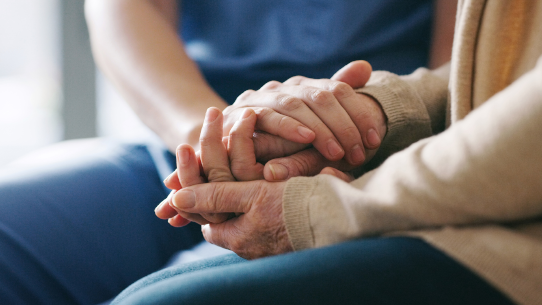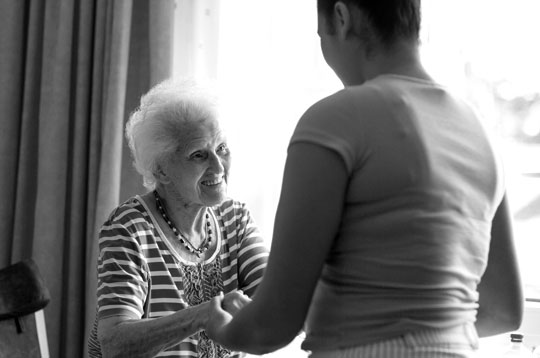Self care
Finding balance
Although rewarding, looking after others can be stressful. Without rest and self care, you risk burnout. We have the tools and resources to keep you going strong.
Self-guided care
Getting the help you need
Statistics show that in 2020, nearly 53 million Americans provided care to an adult.1 Yet, many of these caregivers never ask for help. From tools to workshops and coaching, learn about getting the support you need in this A Healthier Michigan article.
- Join a support group
- Meditate or pray
- Join a workshop
- Find a caregiver coach
Primary care provider
Your partner in mental health
If you’re looking for an easy way to connect with a mental health professional, make an appointment with your PCP for a list of references. They may recommend other behavioral or mental health options for you to try as well.
Don’t have a PCP? You can log in to your Blue Cross member account to find one.
60% of caregivers have symptoms of depression and anxiety²
Anxiety
People with anxiety tend to have persistent, excessive fear or worry in situations that are not threatening.2
-
Feeling uneasy or a sense of dread
-
Feeling restless, nervous or irritable
-
Having a racing or pounding heart
-
Feeling you can’t catch your breath
-
Having an upset stomach or headache
Depression
People with depression have a series of symptoms, including hopelessness, that lasts longer than two weeks.3
-
Feeling hopeless or guilty
-
Loss of interest in activities
-
Having trouble concentrating
-
Having physical aches and pains
-
Changes in sleep or appetite
Daily routines help reduce depression and anxiety
If you’re experiencing symptoms of anxiety or depression, please seek support. You can also use these at-home strategies to manage everyday stress.
Mindful breathing: The 4-7-8 technique
Inhaling for four seconds, holding your breath for seven seconds and exhaling for eight seconds can help reduce your heart rate when you feel anxious or aggravated.
Reduce commitments
If you feel overwhelmed or stretched too thin, consider limiting your commitments. Saying no is hard and takes practice. But oftentimes, saying no to others means saying yes to yourself.
Set personal goals
Depression can make you feel fatigued and throw off your regular routine. Setting a few goals to accomplish during the day and including time to be physically active can help improve your mood and energy levels.
Nourish your body
Your physical self is connected to your emotional self. Eating nutrient-rich foods and avoiding stimulants like caffeine and alcohol can help you find balance.
Crisis assistance
PODCASTS AND WEBINARS
Be good to yourself
Explore more self-guided care paths now.
-
A Healthier Michigan podcast
From nutrition and exercise to health, wellness and community activities, join expert guests as they explore the many ways to be your best.
-
Blue Cross Virtual Well-Being℠
Check out these weekly webinars for a dose of inspiration. Topics include resiliency, emotional health, mindfulness and much more.
Recommended reading

Who’s caring for caregivers?
Are you at risk? See the warning signs and get tips to avoid burnout.
Read article
Stress 101
Learn more about the causes, types and ways to prevent stress in your life.
Read now
Caregiver health
Learn more about the impact caregiving can have on your physical and emotional health.
Learn more
You've got the most important job in the world. Let us help you through it.
See parent's guide


Mind, body, and spirit. Staying fit and active also means taking care of your mental health.
See senior's guide
Good health unites all of us. Get tips for a strong mind-body connection.
See member's guideResources
The information contained on this webpage is for educational purposes only. Nothing on this webpage is intended to be, nor should be used as or relied upon as, professional medical advice. Nothing contained on this webpage is intended to be used for medical diagnosis or treatment. For medical advice, or to receive medical diagnosis or treatment, consult with your health care provider.
